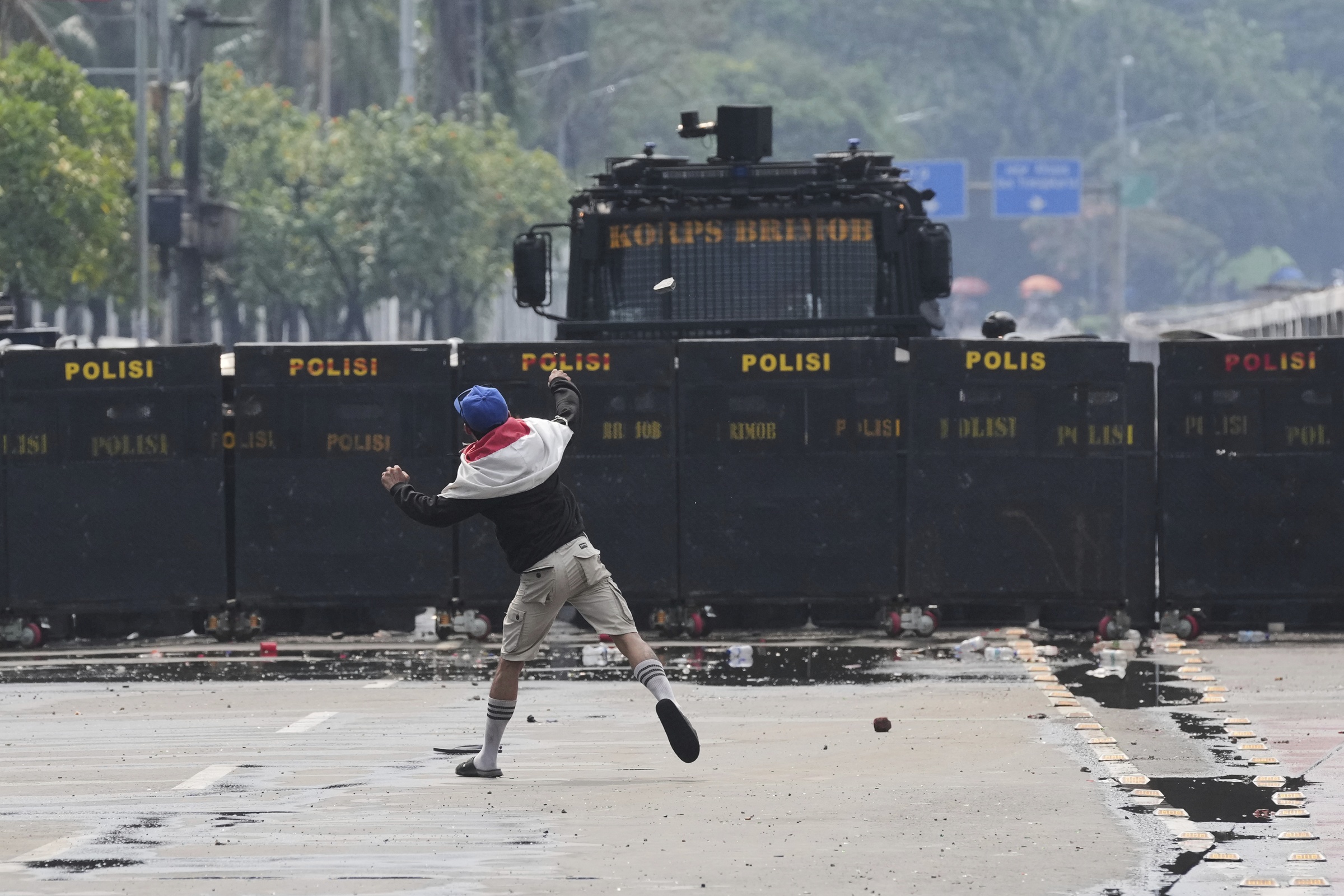 |
Police walk through tear gas during a protest in Surabaya, East Java, on 30/8. *AFP |
The protests began on 25/8, sparked by public anger over lawmakers' salaries and housing allowances.
According to media reports, 580 Indonesian lawmakers receive a monthly housing allowance of 50 million rupiah (3,041 USD) in addition to their salaries. This allowance, implemented last year, is almost 10 times the minimum wage in Jakarta.
Critics argue that the allowance is excessive at a time when many Indonesians face rising living costs, increased taxes, and widespread unemployment.
Protests escalated into violence on 29/8 after a motorcycle delivery driver was killed by a police vehicle during a clash between security forces and protesters near the parliament building.
In the photo, a protester throws a rock at police outside the parliament building in Jakarta on 31/8.
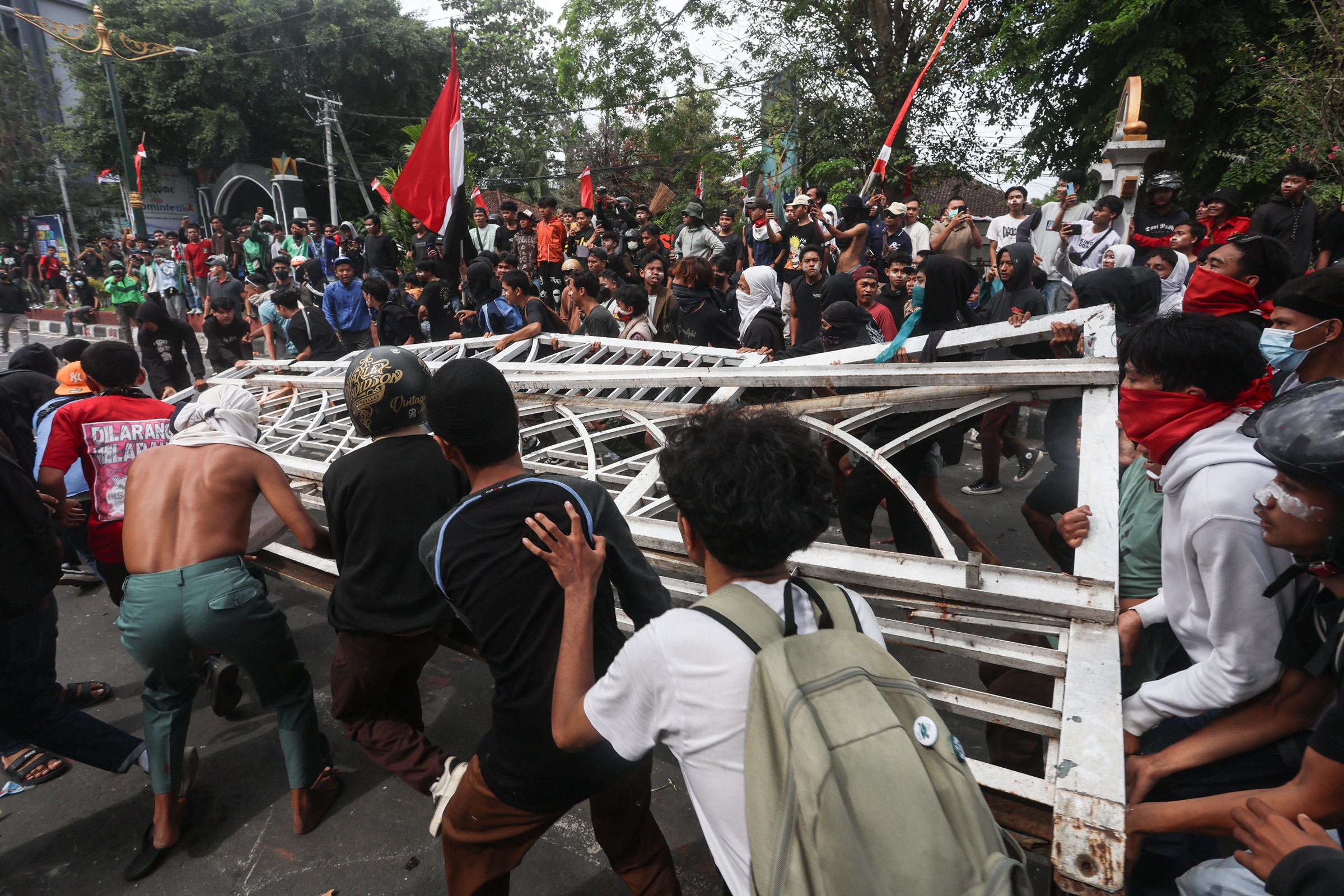 |
Protesters tore down the fence of the West Nusa Tenggara provincial council office in Mataram, on the island of Lombok, on 30/8.
These are the largest and most violent protests since President Prabowo Subianto took office less than a year ago. Subianto canceled a planned visit to China this week to address the situation.
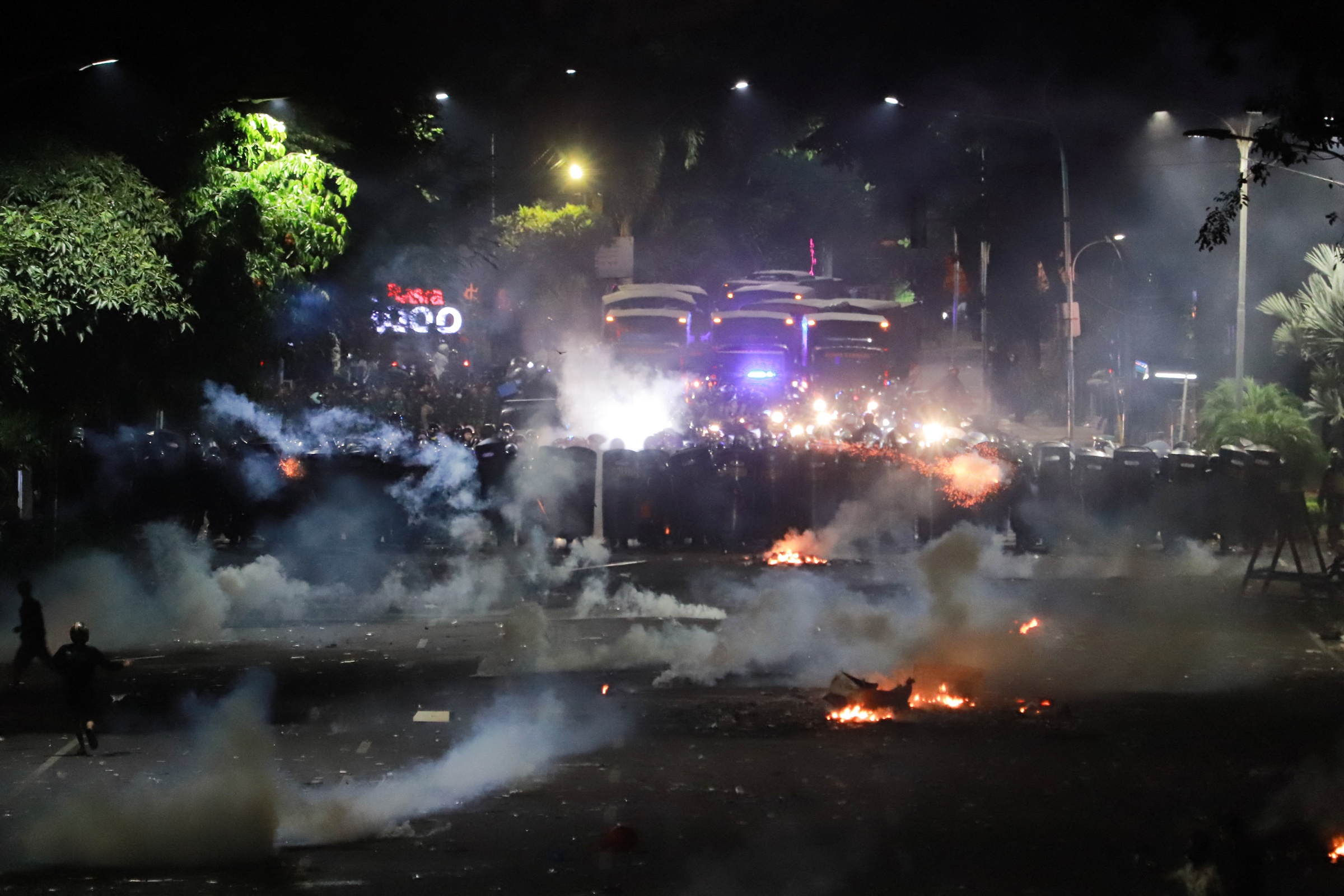 |
Clashes between protesters and security forces in Surabaya, on the island of Java, on 30/8. Riot police used water cannons and tear gas to disperse thousands of protesters gathered near the parliament building.
Looting and vandalism occurred amid the chaos. In a press conference on 31/8, President Prabowo stated that he had ordered the military and police to take firm action against rioters and looters. He said some protests showed signs of terrorism and treason.
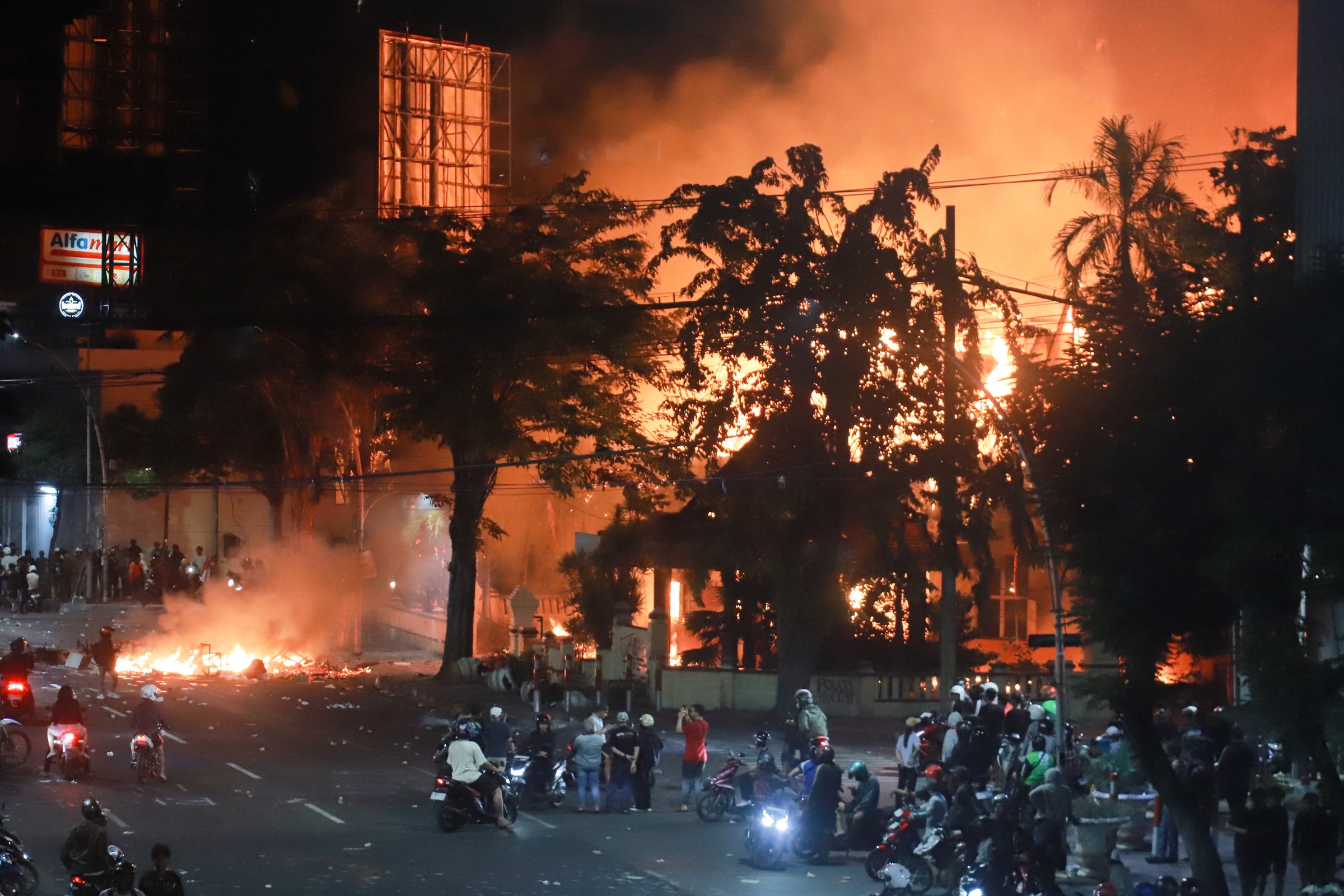 |
Fires burn in the streets of Surabaya during protests on the night of 30/8.
In Jakarta, the military has been deployed to protect the Presidential Palace alongside the regular guard. The homes of key ministers and government offices are also under military guard.
Early on 31/8, hundreds of people stormed and looted the home of Indonesian Finance Minister Sri Mulyani Indrawati in South Tangerang, near Jakarta.
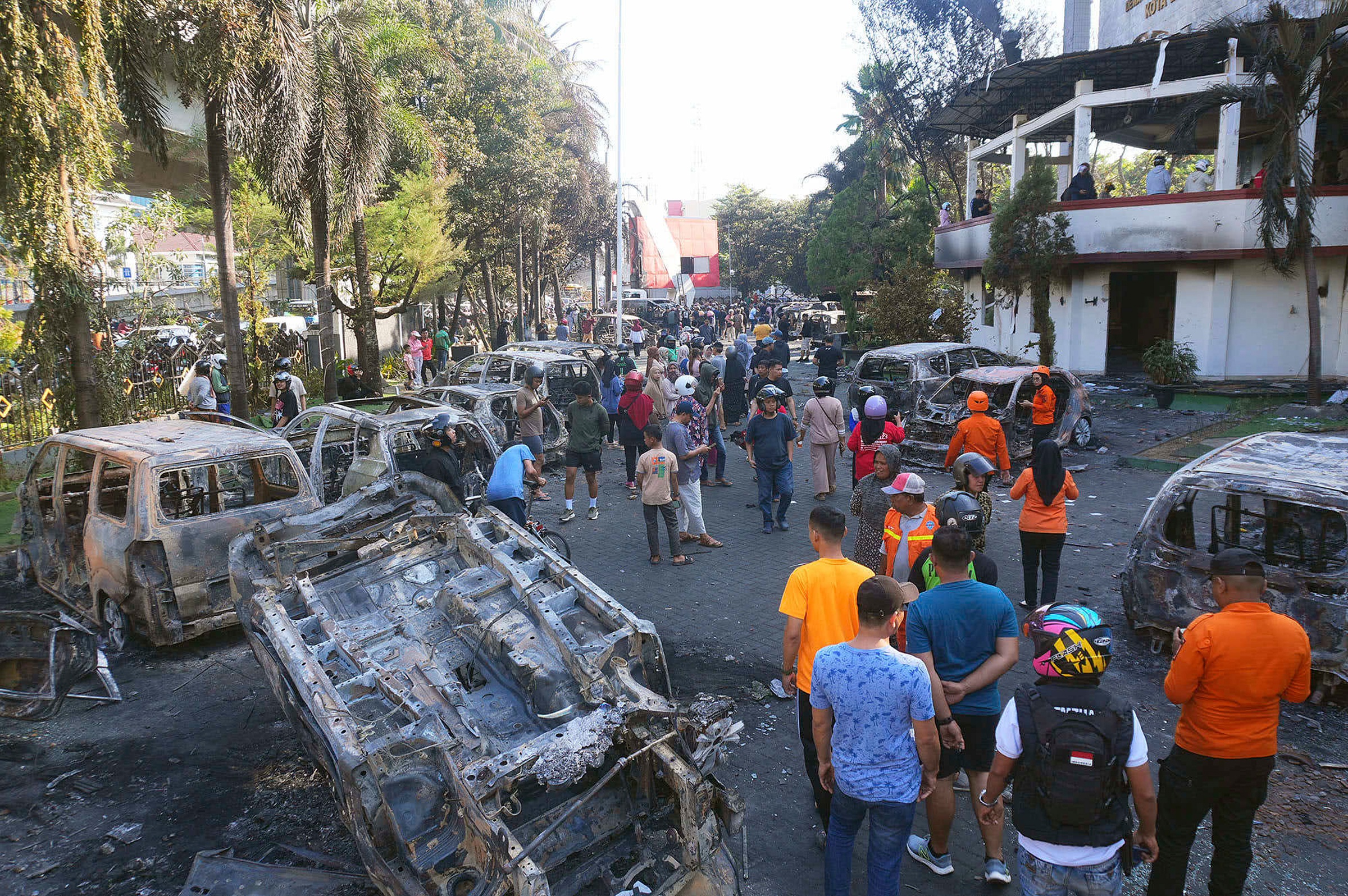 |
Burned vehicles in Makassar, South Sulawesi, Indonesia, on 30/8.
President Subianto announced that Indonesian political parties had agreed to reduce lawmakers' benefits to appease the protests.
"Parliamentary leaders have announced they will cancel some policies, including the allowance policy for members of parliament. They are also suspending official trips abroad," he said. "I have ordered the police and military to take the firmest possible action against the destruction of public facilities, looting of private homes or economic centers, in accordance with the law."
It is unclear who is behind the violence and looting that followed the protests, initially organized by student unions.
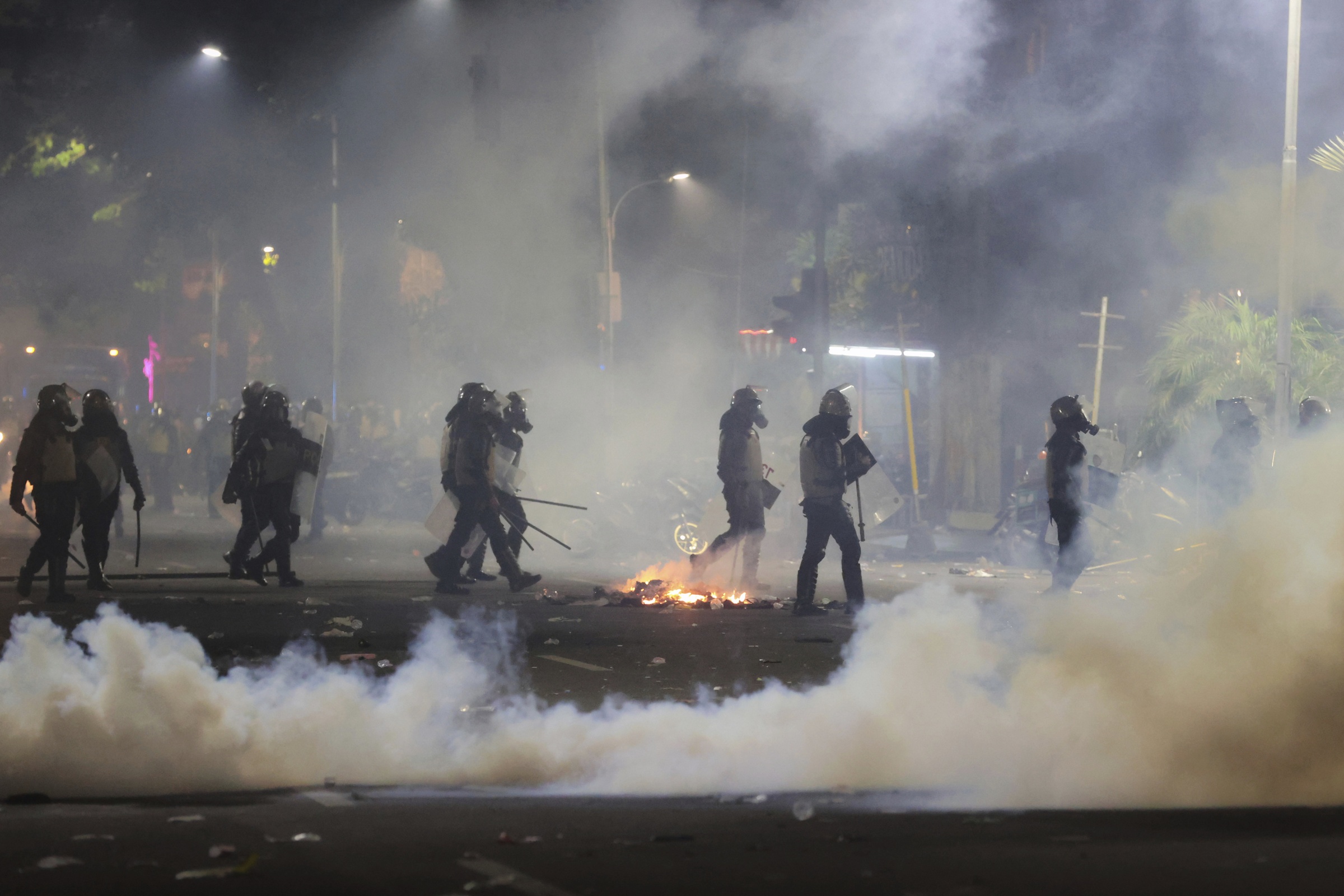 |
Police walk through tear gas during a protest in Surabaya, East Java, on 30/8. *AFP
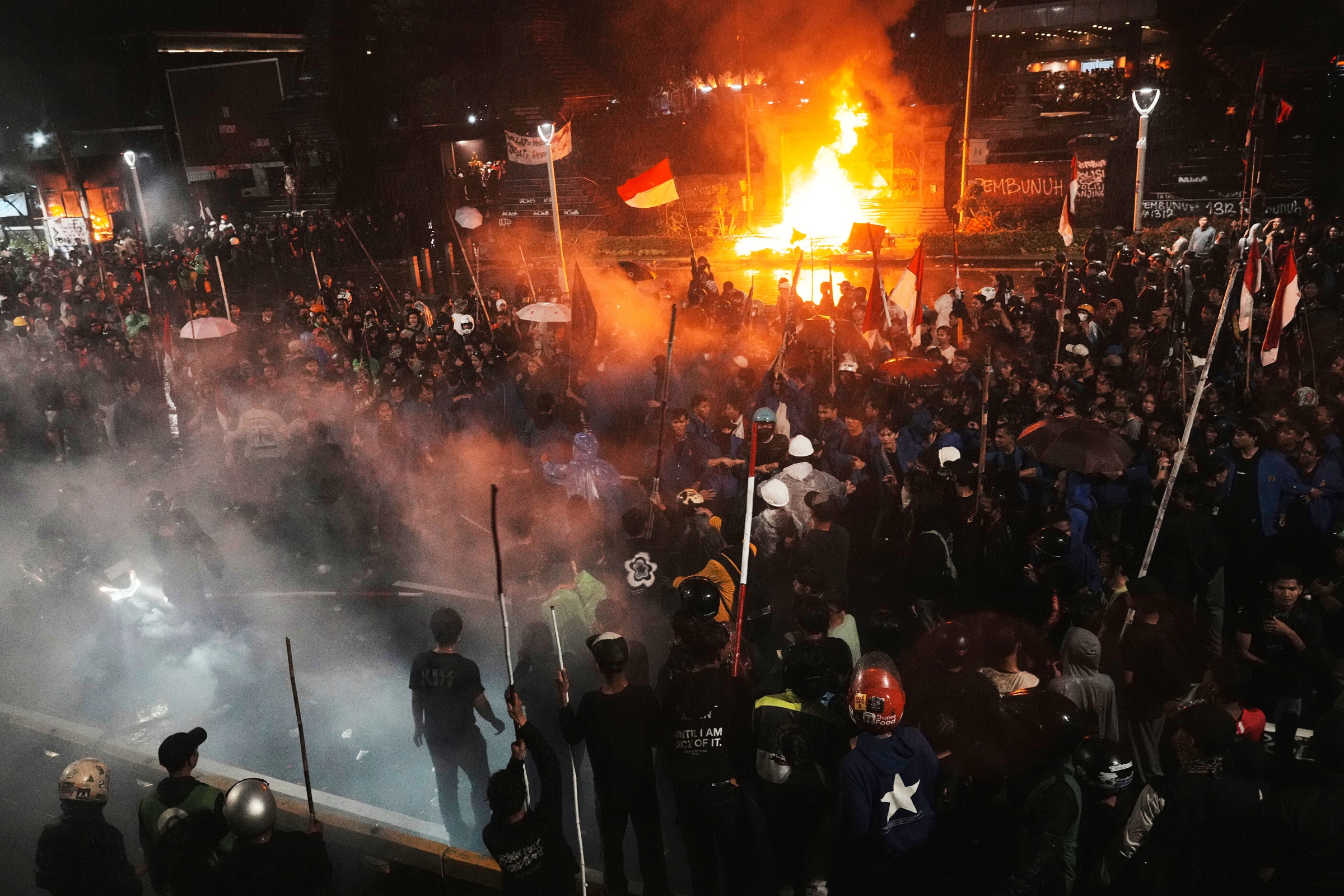 |
Students protest outside Jakarta Regional Police Headquarters on 29/8.
Muzammil Ihsan, head of the All-Indonesia Student Executive Organization, the country's largest student group, said the reduction in lawmakers' privileges was "not enough" and that they were considering further protests.
"The government must address the underlying issues. The anger on the streets is not without reason," Ihsan said.
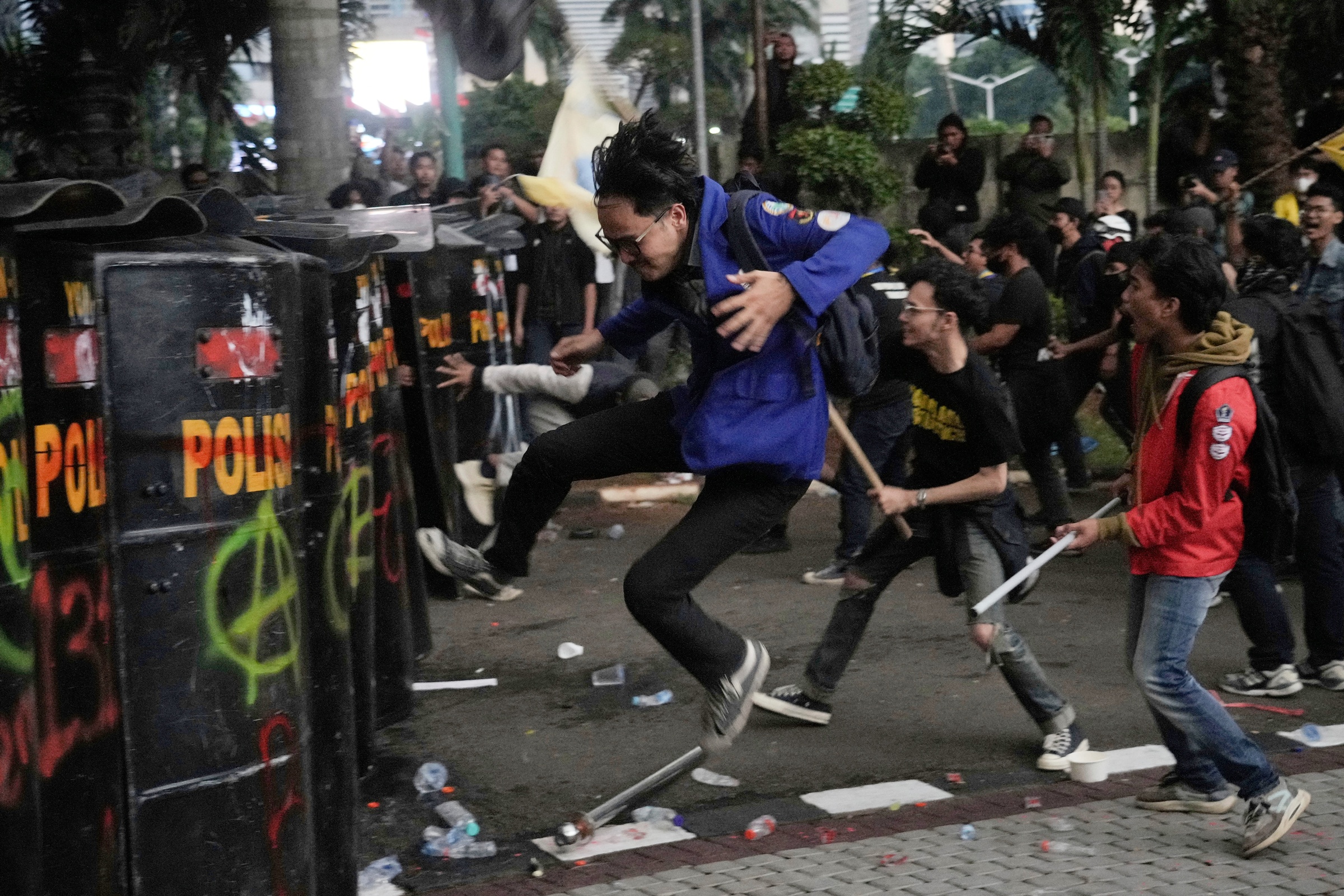 |
A student kicks a riot police shield during a protest at Jakarta Regional Police Headquarters on 29/8.
Tegar Afriansyah, president of the Indonesian Student Federation for Democracy, said the latest announcement from the president does not address the root of the problem: a system that favors the political elite and an "unequal economic structure."
Photos: AFP, AP.












